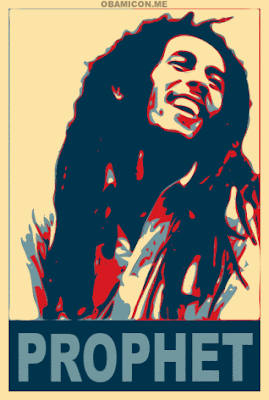I hope that this project helps people see Marley as more than a legalize Marijuana peacenik poster boy. I have always held a special place in my heart for Marley, but a few months ago I realized that I wanted to know more about him. My surface level knowledge of his life was not enough to help me put his music into the social historical context I need to create meaning in my world.
 I needed to know more about the world that had helped give birth and foster this modern day prophet. My relationship started in seventh grade and my copy of Rebel Music. It was the first Marley album I owned. Although I was listening to intense political discussions at my father’s dinner parties, there remained a huge gap between what I was learning at home and at school. The play it safe “social studies” curriculum was too busy brainwashing me in civic mindedness to focus on the issues being raised by Marley in Rebel Music. Each song is a lesson in modern day political hypocrisy and social activism:
I needed to know more about the world that had helped give birth and foster this modern day prophet. My relationship started in seventh grade and my copy of Rebel Music. It was the first Marley album I owned. Although I was listening to intense political discussions at my father’s dinner parties, there remained a huge gap between what I was learning at home and at school. The play it safe “social studies” curriculum was too busy brainwashing me in civic mindedness to focus on the issues being raised by Marley in Rebel Music. Each song is a lesson in modern day political hypocrisy and social activism:1. Rebel Music (3 O'Clock Roadblock)
2. So Much Trouble in the World
3. Them Belly Full (But We Hungry)
4. Rat Race
5. War/No More Trouble
6. Roots, Rock, Reggae
7. Slave Driver
8. Ride Natty Ride
9. Crazy Baldhead
10. Get up, Stand Up
 I will spend the next few weeks exploring each song in depth, but I still remember the excitement I felt listening to these rebellious anthems. One need not hear more than,
I will spend the next few weeks exploring each song in depth, but I still remember the excitement I felt listening to these rebellious anthems. One need not hear more than,A hungry man is an angry manto understand the nature of crime.
Or
Until the philosophy which holds one raceto understand political disasters like the modern day Gazan war.
Superior and another inferior
Is finally and permanently discredited and abandoned
Everywhere is war, me say war
While I enjoyed the optimism of favorite Marley sing-a-longs, it was in his politics that I truly connected with the man.
Ever since then, I have been a regular listener to his music. I have taught his songs to my students in Mozambique, the Bronx, and Qatar. I will write more on these experiences in future posts. I wanted to start this project explaining where I am coming from.
I earnestly respect Marley. I see him as more than a musician or even social activist. Although I am not religious, I see Marley as an incarnation of the same spirit of peace and freedom of which I include: The Buddha, Jesus Christ, Gandhi, and many others.
In his book White mentions how people were intrigued and mesmerized by
the ethno-political thrust of his snarling reggae anthems, and the inside-out time signatures that kept them pulsating.I am no different. I have never listened to much Reggae beyond Marley, so I may not be the best judge, but I see Marley’s music beyond Reggae. With elements of Motown, soul, and rock, Bob Marley is beyond genres. He simply delivers music at its purest and most honest level. But more of that to come.
So what is your starting point for Marley? Where did you first hear his music? What struck you about him first? Are you still listening to him or was a passing college phase? Perhaps you have never listening to Marley, what are your thoughts?

No comments:
Post a Comment